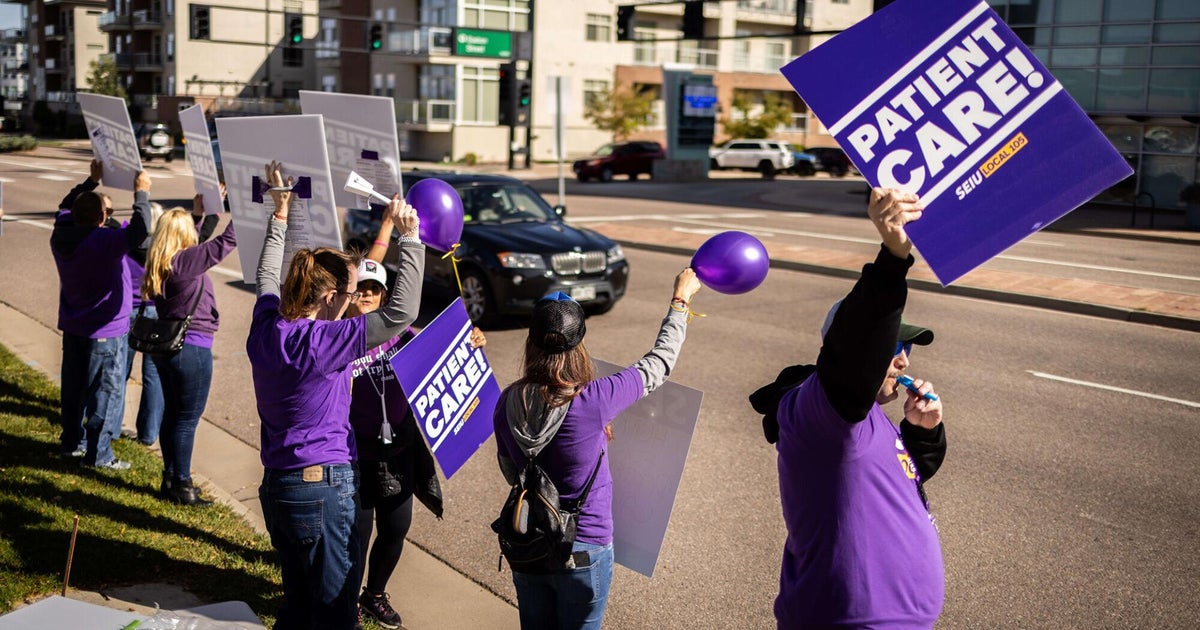More than 75,000 Kaiser Permanente workers are set to return to work on Saturday without a contract agreement after staging the largest walkout by health care workers in U.S. history.
The three-day walkout at Kaiser hospitals and medical offices in five states and Washington, D.C., is scheduled to end tomorrow at 6 a.m. local time, according to the Coalition of Kaiser Permanente Unions. The work stoppage by nurses, lab technicians, pharmacists, and others began early Wednesday in California, Colorado, Oregon, Virginia, Washington, and the nation’s capital.
Workers claim chronic understaffing bolsters Kaiser’s bottom line but hurts patient care and staff morale, while the managed care giant argues it faces an industry-wide shortage of workers.
Oakland-based Kaiser and the coalition of unions representing the workers said they would resume negotiations next week, with the next bargaining session now scheduled for October 12.
The coalition may issue another 10-day notice of its intent to strike after Saturday, with further walkouts possible in the coming weeks, it said, citing staffing levels and outsourcing as points of contention.
Kaiser “needs to retain and attract qualified health care professionals. Outsourcing and subcontracting would have the opposite effect,” Kathleen Coleman, medical assistant message management, Arapahoe Primary Care in Colorado, said in a statement distributed by the coalition.
How raising wages could help Kaiser
A wage proposal by Kaiser earlier in the week offered an hourly floor of $21 to $23, depending on location, beginning next year and to be increased by one dollar in 2025 and 2026. Unions in the summer had called for a $25 an hour minimum across Kaiser facilities.
“We look forward to reaching a new agreement that continues to provide our employees with market-leading wages and benefits, and ensures our high-quality care is affordable and available to meet our members’ needs,” a spokesperson for Kaiser said Friday in an email.
Kaiser may be paying market-leading rates, but if it’s unable to fill positions, then the company needs to increase pay and enhance conditions to bring workers back or entice others to apply, according to Gabriel Winant, an assistant professor of U.S. history at the University of Chicago.
Employees who spoke to CBS MoneyWatch described being severely overworked and not having enough backup to properly care for patients.
“You don’t have the ability to care for patients in the manner they deserve,” Michael Ramey, 57, who works at a Kaiser clinic in San Diego and is president of his local union, said in the run-up to the strike. “We are willing to do whatever it takes to ensure we have a contract in place that allows us to be staffed at the levels where we need to be,” said the ultrasound technician, at Kaiser for 27 years.
The strike coincided with increased momentum for organized labor, which is enjoying growing public support as autoworkers and others walk off the job seeking better pay and work conditions.
Denial of responsibility! Vigour Times is an automatic aggregator of Global media. In each content, the hyperlink to the primary source is specified. All trademarks belong to their rightful owners, and all materials to their authors. For any complaint, please reach us at – [email protected]. We will take necessary action within 24 hours.


